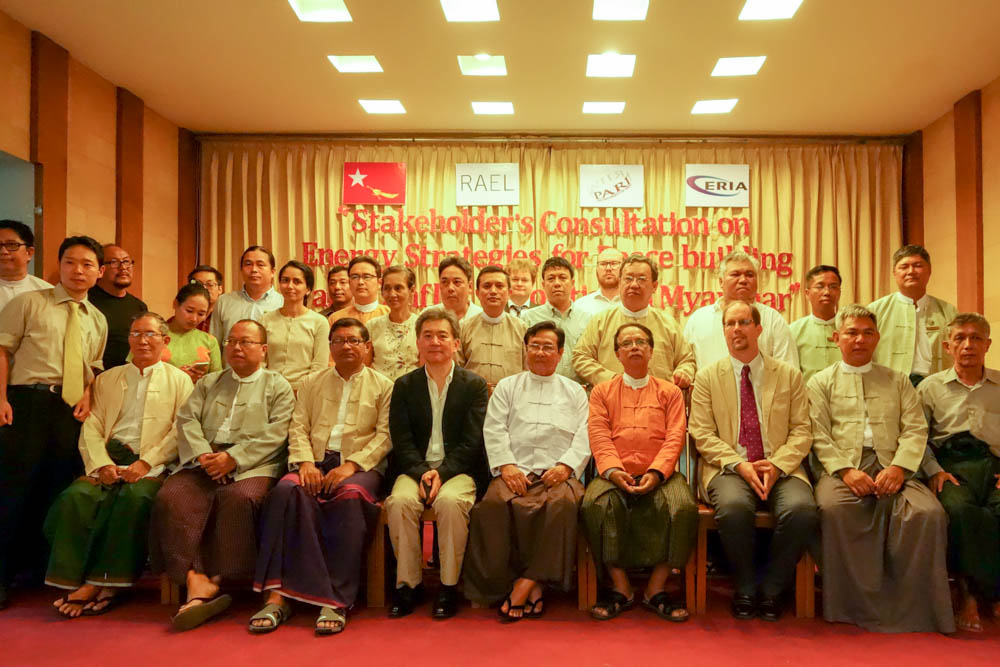Report - Roundtable for Energy Strategies for Peace building and Conflict Resolution in Myanmar
June 7, 2017

| [Date] | Thursday, May 18, 2017 |
|---|---|
| [Venue] | Royal Rose Thiri Hall, Yangon, Myanmar |
| [Language] | English |
| [Hosted by] | Policy Alternatives Research Institute (PARI, The University of Tokyo), Renewable & Appropriate Energy Laboratory (RAEL, UC Berkeley), and National League for Democracy (NLD) |
| [Supported by] | Economic Research Institute for ASEAN and East Asia (ERIA) |
Program
| Welcome speech By U Hanthar Myint, Chairperson Central Economic Committee, NLD |
| Opening speech By Prof. Hisashi Yoshikawa, PARI, The University of Tokyo |
| Photo session and coffee break |
| Challenges and opportunities for energy and peace in Myanmar By Noah Kittner, Researcher, RAEL, UC Berkeley |
| Discussion Points: Energy Development Strategy for Peace-building in Myanmar By Dr. Kensuke Yamaguchi, Project Assistant Professor, PARI, University of Tokyo |
| Round table Discussion for Energy strategies for Peace building and Conflict Resolution in Myanmar
Comment and closing remarks
By U Min Khin, Secretary, Central Economic Committee, NLD |
Summary
On May 18th, the Global Energy Policy and East Asia Research Unit of PARI, together with the Program on Conflict, Climate Change and Green Development of UC Berkeley and the Central Economic Committee of the National League for Democracy (NLD), hosted a roundtable with local and international stakeholders at the Royal Rose Thiri Hall in Yangon, Myanmar. The overall discussion topic was a continuation of the previous event on the potential development of an energy strategy to favor conflict resolution, rather than exacerbate it, particularly in the border areas of the country. U Hanthar Myint, from NLD, provided the welcome speech and emphasized the importance of considering the sharing of resources and the accessibility of energy simultaneously. Prof. Hisashi Yoshikawa opening speech described the relevance of linking the energy and peace national discussions in order to achieve a win-win approach and moving towards a more general equilibrium. Noah Kittner, from RAEL, and Dr. Kensuke Yamaguchi, from PARI, provided background on the challenges and opportunities of the development of an energy strategy with consideration to the peace process in Myanmar, as well as, discussion points to guide the roundtable. Participants were from a diversity of stakeholders such as political parties, ethnic groups, civil society organizations, and development partners. A consensus arose around the importance and timing of including the national energy policy into the reconciliation process. In order to achieve that, numerous issues were pointed out by different participants, such better coordination of international donor’s plans and the need for a strategic environmental assessment beyond the hydropower sector. Projects on the deployment of decentralized energy systems, both by independent entrepreneurs and governmental agencies, were mentioned as examples of projects strongly connected with the pacification process of the country. U Min Khin, from NLD, concluded the roundtable thanking participants and encouraging the continuation of the research.


